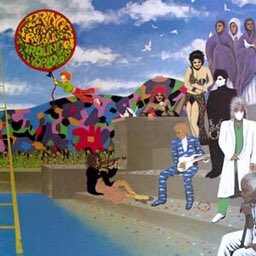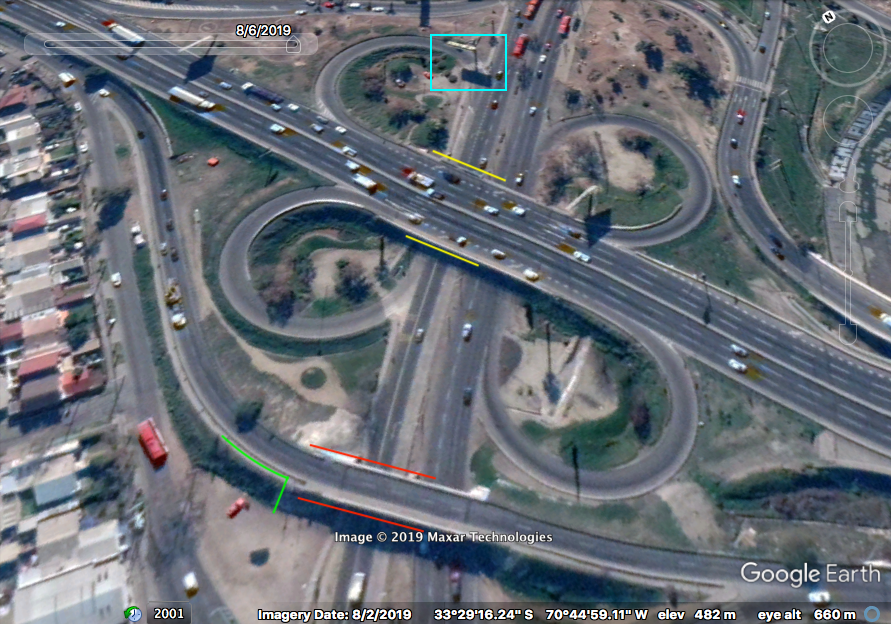It used to be that you used whatever name you wanted in whatever village you were going & you could always reboot
In some cultures, knowing real name of something was to have power over it
What Satoshi did by using a pseudonym is he made sure that everyone focused on the technology and the ideas he put out there, not on his celebrity, basically eliminating ad hominem attacks against him,
What digital currency will unlock is the ability to have intermediates.
You don't need to wager your entire bank account or your entire real name on something anymore.
Currently, there's a strong disincentive for speaking the truth if it makes your in-group look worse or your out-group look better.
Financial incentives help counteract those tribal incentives.
Since Mobile makes us more mobile, & law is a function of latitude & longitude, it's cheaper to change the law under which you live
The way to do that used to be by voting, but exit is becoming easier, which also empowers voice
W/o exit it’s mostly symbolic. Or it becomes revolution.
Sovereign Individual enables libertarian founder to rebuild the state.
(e.g self-driving cars prevent countless deaths, but might introduce a few new ones. Easy calculus. And yet.)
The promise of charter cities to create spaces for this asymmetric risk-taking.
This in a nutshell is why we need parallel institutions across the board
When you pick a North Star metric, make sure to include a second measure of quality to compensate for possible gaming of the first metric.
E.g. if you incentivize salespeople on revenue, also pick a metric related to, say, customer feedback or churn
Once bus # is more than 1 for every position, you have to view ppl as replaceable.
That's a critical transition that happens in companies where they evolve from a collection of individuals to a multi celled organism.
Good things — Society based on choice & consent. Citizen becomes customer.
Bad things — criminals gain new technology too.
Punchline: More upside & more downside. But net positive, and increased global equality of opportunity.
1- identify person
2- find a way to take private key from person
it shifts the logic of violence, where it used to be that if you had the biggest military, you could take the most money, But not as easy anymore.
Hierarchy, capitalism, meritocracy, profit *and* egalitarianism, mission-driven, community ethos, & storytelling.
More information asymmetry means more liquidity which means you can rent out your time.
Any down time you could convert into money just based on how hard you're willing to work
Press button, get work.
What if you could actually do that in such a way that didn't involve killing millions of people, like communism did?
Voice is voting, Exit is immigration
Voice is making a bug report, Exit is forking
Voice is trying to do turnaround of a company, Exit is leaving to start your own
The internet was going but post 2008 w/ iPhone apps where people can program for, internet exploded
everything became more useful when you could do it in a mobile form factor (email, twitter, google maps)
And now, via telepresence you can now have somebody be a migrant worker without actually having to leave their family,
Immigration policy is now your firewall
Consider Twitter in 2007, ppl tweeting abt breakfast.
The idea that ppl would get fired over tweets, that significant fraction of news would be wrappers over tweets, that politics would shift from offline to this online war zone—that too seemed implausible.
e.g. We used to have 30-minute sitcom, we now have 10 second GIFS & 10-hour Netflix binges. 10 min wrap up podcasts and 3 hr long interview shows.
You're here studying & ppl are just shooting at each other & sometimes you'll tweet something meant for other learners & a war zone participant will catch wind & shoot at you & try to pull you into the ongoing worldwide social war.
Treats ballot not as something to be aggregated alone, but as a search query
This is happening online already w/ social neworks
Finding ideological patriots in the cloud & then migrating to live w/ them will be story of 21st century
2 ppl meeting for a day—ppl meet on LinkedIn & get coffee
2 ppl for a yr—EHarmony
100K ppl for a day—Protest
100K ppl for a week—Burning Man.
No upper limit to scale & duration. 100K ppl can live together for yrs = cloud cities.
Left = compulsory savings account
Right = once that money is there in HSA, it’s free market capitalism from there on (insurance, reimbursement, etc)
Criminalize freedom of speech, and, among the people who will pursue, many will be criminals.
Not a reflection of the merits of freedom of speech, even though restrictions on them will paint it in a poor light.
That is to say, if you choose to be in a society that has a centralized government and that works for you, wonderful
if you choose to be in a basically a commune, and people could actually make that work, wonderful.
Harvard doesn't have open borders. Neither does the New York Times. You can't just go and walk in and get a job or admission there.
"If we all move there, your tax rate is currently 10%? Can you knock it down to 9.5?" And we'll all move there. They'll . calculate it and say, okay, I can discount it and we'll lose $ here, but we'll make it up on volume, boom, it's win win"
At that point, it starts becoming just meaningless to have geographically bounded nation states.
mobile is making this more mobile, and law is a function of latitude and longitude.
So if it's cheaper to change your x&y location, it's cheaper it also change the law under which you live
Two ways to opt out of current location: VR & physically moving.
then finally, the true borders of a community are no longer the geographical borders, but the ideological borders.
1- Non-aggression principle: if somebody first strikes you and knocks off your head, then you can even retaliate. So if you're just premised on retaliation, you're not going to spread. Communists were definitely willing to first strike and so on
2- "Live & let live" is not a winning ideology. Galt's Gulch is a retreat
As opposed to a tactical placing your foot back to then drive forward w more energy
E.g. we'll move to America, build up there & then come back into Europe like 100yrs later
I think very few of them are actually consumer protecting"
Netherlands model: drugs are basically legalized.
Singapore model: execute drug smugglers.
Those are extreme left or right--what US does is take the worst kind the left and the right (e.g. healthcare)
if I install software, I know on some level a software engineer wrote this, but think much more implicit is that in yours and everybody's head, some political engineer, some meme-genius, installed memes in our head we can' even trace the origin of.
e.g. Twitter 2.0 w/ marketplace for usernames.
e.g. The earlier you sign up for FB, more $ you get.
Lots of things that work in practice, but not in theory
The first is the path of the citizen: vote w their ballot, vote w their wallet, vote w their feet. I think that's important that we have all three options or they can choose among their leaders.
what's great about the whole startup world is it takes these ambitious young megalomaniacs and it puts them into something where their their actions are actually mostly pro social.
The criminal breaks rules in order to destroy an entrepreneur breaks rules in order to build
Societies need paths to become a citizen & a leader
You don't want to test everything yourself. you want to do diligence on a regulator & then just kind of trust after that point.
What regulators deliver as a product is basically a form of star ratings, and some form of bands of bad actors.
Google regulates the web, filters out malware
eBay regulator of their own marketplace, filtering out bad actors.
Uber & Airbnb have star ratings
multiple different legal regimes that exist at the same x comma y location at the same latitude and longitude.
on your phone, you can opt into different taxi regulatory regimes w the tap of button
by tolerating a period of anarchy, you usually develop a technological solution that's superior to imposing a misaligned third party.
Email spam works this way.
Shirt sleeves to shirt sleeves in 3 generations: 1st becomes wealthy, 2nd inherits some work ethic, & 3rd becomes spoiled kids who've never known hardship
And that money attracts parasites, folks who, in a weird, rational kind of way, want maximum compensation for minimum effort, and that huge amount of wealth now starts getting eaten from within by termites
And so disruption takes care of itself
There's so many different areas that crypto gives you tools to attack: Encryption. Property Rights. Governance. Balance.
A few hundred strangers on a cap table can build Google
Crypto can increase the scale of those cap tables by 1,000x.
From aligning a few hundred ppl to millions of people.
What could that enable? Sovereign Collectives
20,000 Amazon engineers worth was enough to bring NYC to the bargaining table. NY is 27 million person state. Why did they care about 20,000 people?
Probably made economic sense. Shows that small amounts of coordinated ppl can influence law.
progressives would would deny win-win, see world as zero-sum.
conservatives/libertarians are not as ambitious or collective (prefer live and let live)
And libertarians/conservatives are often against centralization, and concentration of state power.
Crypto aims to decentralize both.
I'm not sure that's real in economics, but I know it's real on Twitter: all ideologies converge the same ideology (the sick burn, the dunk, "let me get this straight")
What's funny is even if you actively try to not do this, the 1% of the time you do it will be the tweet that seen by, like 80% of people, right?
And what happens is, people even if they don't realize it, subconsciously respond to incentives.
They're someone who's worthy of respect, but also can be wrong, and should be!
Newton probably would have been tickled that Einstein corrected his theory.
W/ crypto, that teacher, if they choose, can go straight to the startup. They can still go the old route, but now they have a choice.
When selecting, they don’t just want a average school for their kid, they want the best school. Not a random doctor, the best doctor.
They're thinking about wealth & value creation, which involves downside as well as upside.
They appreciate that $ doesn't grow on trees, & it's hard to make(w/o printing or taxing).
The French Revolution was like, we want food, give that to us. But didn't change until regime changed.
American revolution said, we want legitimacy. So ppl experimented w/ democracies & made a better system that replaced existing one.
And so it was both all men are created equal *and* no taxation without representation.
Dynamism/inspiration of the left & practicality/concreteness of the right.








